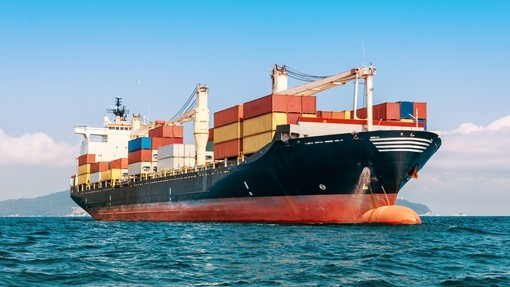Assuranceforeningen Skuld (Gjensidig) and another -v- Jesse Remalmog and others [2017] EWHC 2304 (Comm)

Details
Representation:
Chris Smith QC (instructed by Hill Dickinson LLP) for the claimants
David Allen QC (instructed by Campbell Johnston Clark Ltd) for the defendants
In this case the claimants asked Mr Justice Field to consider an application for summary judgment in respect of an anti-suit injunction. The main issue before the court was whether an LOU, issued by the claimants and accepted by the defendants, restricted the right of the defendants to pursue claims otherwise than before the High Court of Singapore.
The factual background
The claimants were the owners and insurers of “SEVILLA KNUTSEN” (‘the vessel’). On 18 April 2017 the vessel allegedly struck a coral reef located off the Eauripik Atoll, Federated States of Micronesia. The three defendants, as Chiefs of the municipality Eauripik, on behalf of themselves and as representatives of 193 others, commenced proceedings in rem in Singapore on 23 June 2017 against the claimants. The defendants claimed damages on the basis that they and those they represented had an economic interest in the reef, which had been damaged. The vessel was arrested in Singapore and the defendants demanded security for their claim in the sum of US$ 9,247,220.
The claimants entered into negotiations with the defendants as to the wording of a letter of undertaking (‘LOU’) in order to secure the vessel’s release. On 26 June 2017 agreement was reached and an LOU was executed and accepted by the defendants which provided that the defendants’ claim should not be carried on ‘otherwise than before the High Court of Singapore’, but reserving ‘any rights, objections and defences’ of the defendants. The LOU itself was subject to English law and jurisdiction.
On 13 July 2017, the defendants filed an application for a stay of proceedings in the High Court of Singapore, on the grounds that Singapore was not the correct forum to hear the dispute. The application was supported by affidavits which expressed that, should the stay be granted by the Singapore Court, the defendants intended to prosecute their claims in the courts of the Federated States of Micronesia. The application was due to be heard on 28 July 2017.
In consequence, on 26 July 2017 the claimants applied to the English High Court for interim relief. Mr Justice Picken heard the claimants in a hearing without notice and granted an interim injunction, with a return date of 12 September 2017, preventing the defendants from commencing or prosecuting proceedings in respect of their claims other than before the High Court of Singapore. He declined however, to grant an interim injunction preventing the defendants from pursuing their stay application due to his concerns that to do so would ‘tread on the toes’ of the Singapore court.
The return hearing
At the return hearing, Field J considered two applications made by the claimants, and an application by the defendants to adjourn the claimants’ applications to allow the defendants’ stay application in Singapore to proceed.
The claimants’ applications were:
- For an order extending the interim injunction granted by Picken J until trial or further order and enlarging it so as to restrain the defendants from proceeding with their stay application; and
- For summary judgment against the defendants.
The claimants argued that the defendants had agreed on clear and unambiguous terms to submit their claim to the exclusive jurisdiction of the High Court of Singapore. The defendants’ conduct clearly demonstrated their intention to act in breach of that agreement; the making of the stay application was a necessary precursor to, and part and parcel of that breach.
The claimants also referred to the recent case of the “EUROHOPE” [2017] SGHC 218, in which the High Court of Singapore re-stated the position that it was an abuse of process to commence an action in rem for the purpose of arresting a vessel in order to obtain security in aid of legal proceedings in a foreign court. Since that was the position under Singapore law, it could be inferred that both parties’ lawyers would have had this in mind when the LOU was negotiated.
The defendants submitted that the injunctions sought by the claimants should not be granted on the basis of the bespoke wording of the LOU, which specifically saved ‘any rights, objections and defences’ of the defendants. On a proper construction and when the LOU was read as a whole, it was argued, this wording saved the defendants’ rights to pursue their claims in Micronesia.
After carefully considering the wording of the LOU, Field J concluded that the argument advanced on behalf of the defendants was ‘fanciful, commercially absurd and has no prospect of success’.
It was held that the undertaking given by the claimants was in clear and unequivocal terms; in consideration of and upon condition that the claim brought by the defendants could not be brought otherwise than before the High Court of Singapore. Any derogation elsewhere in the LOU, Field J reasoned, would have to be in the clearest terms. The wording advanced by the defendants in support of their position ‘manifestly falls far short’ of this.
Field J went on to point out that if the defendants’ interpretation of the LOU was correct, this would have the ‘commercially absurd’ result of giving the defendants the ‘right’ to arrest another vessel or property in the same beneficial or associated ownership in connection with their claim, whilst still being able to enforce the LOU providing a judgment in their favour had been obtained in the High Court of Singapore.
It followed therefore, that the claimants were entitled to summary judgment.
Field J also granted the claimants’ application for a final injunction preventing the defendants from bringing proceedings other than in Singapore and, as ‘justice requires’, widening it so as to prevent the defendants from proceeding with their stay application. It was explained that no disrespect was intended to the High Court of Singapore, which was in any event not the subject of either of the injunctions. The defendants’ adjournment application was dismissed.
Case comment
We were pleased with the result of this case, which saw our clients succeed on all points.
The firm line taken by Feld J is reassuring to parties seeking to rely on exclusive law and jurisdiction agreements/clauses, as it demonstrates that that the English courts will not show diffidence in granting an injunction to restrain foreign proceedings ‘on the clear and simple ground that [a party] has promised not to bring them’.
This case serves as a reminder that parties should be certain before they enter into an exclusive law and jurisdiction agreement as, unless the terms are explicit that there is room for manoeuvre, the position may be difficult to later resile from.
Additionally, careful consideration should be given to the jurisdiction in which a vessel is arrested and the laws that apply there, as parties may find themselves bound to litigate their dispute where they have arrested. In Singapore, for example, ‘the purpose of the arrest in an action in rem is to provide security in respect of the action in rem’, not to aid legal proceedings in a foreign court (the “EUROHOPE”).






